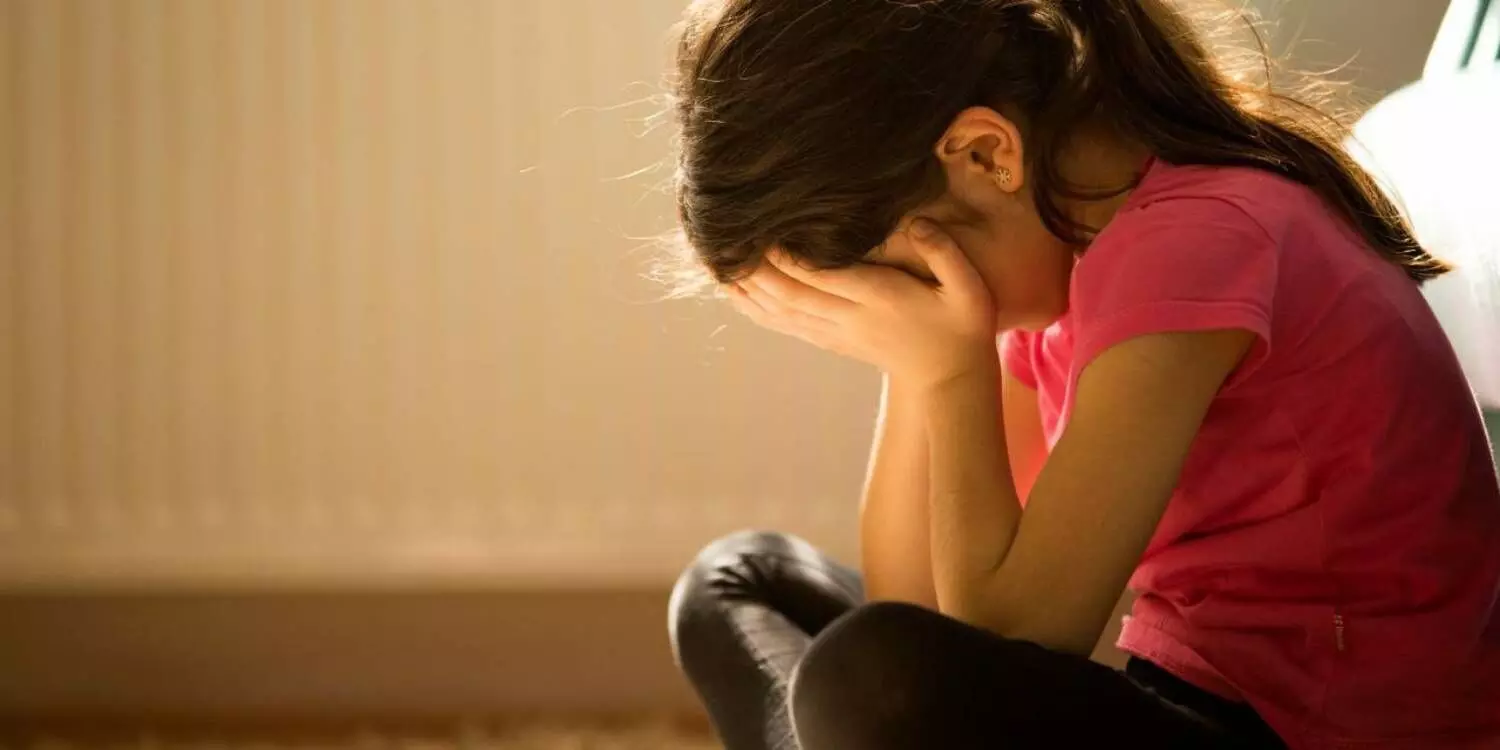World Mental Health Day: How pandemic and online classes fueled depression among children in TS
On this occasion of World Mental Health Day 2022, NewsMeter looks back at how the pandemic and online schooling affected children. The theme for this year is 'Making Mental Health and Well-Being for All a Global Priority'.
By Nimisha S Pradeep
From learning loss to Covid-19 fear at home, recalling the days when children were confined to their homes
Hyderabad: Tanya (name changed) shuddered with fear when a teacher asked her to read from the textbook. She was too scared to even look at the teacher. Post-pandemic when the schools reopened, 11-year-old Tanya was admitted to Medchal Malkjagiri's ZPHS Jawaharnagar. A school dropout, she was too scared to enter the classroom.
Tanya is not an isolated case. When the schools were closed, children forgot most of what they knew. Many of the children, especially in the slums, could not attend online classes and it became extremely difficult for them to match the school's pace. This added to their anxiety and inferiority complex. It reflected in their personality when they returned to school after the pandemic.
On this occasion of World Mental Health Day 2022, NewsMeter looks back at how the pandemic and online schooling affected children. The theme for this year is 'Making Mental Health and Well-Being for All a Global Priority'.
National Council of Education, Research, and Training (NCERT) surveyed to understand the mental health of school students. The most often experienced emotions reported by students were tiredness and low energy (46%), tearfulness (33%), and loneliness 2-3 times in a well (26%). Only 55% of the respondents expressed being satisfied with their body image. This is scary as it can have harmful emotional, physiological, and psychological effects. 28.4% of the respondents were hesitant to ask questions when having difficulties in understanding, indicating a lack of confidence.
A study conducted by Anupama Korlakunta, Assistant Professor, Dept of Psychiatry, Gandhi Medical College and team, aimed to assess the impact of Covid-19 on the mental health of children from 3 to 8 years in Telangana and Andhra Pradesh. The study, which was published in the Indian Journal of Neurosciences, found that countries with fewer restrictions in their Covid-19 containment measures like Germany appeared to have less impact on the mental health of minors. The study also found that female children have a higher risk of depressive and anxiety symptoms.
Dr. Preethi Swaroop, Senior Consultant Psychiatrist at Xenia Hospital in Secunderabad said that lack of concentration has been an important concern that was shared by parents of children during this time. "Children who are on the borderline of Attention Deficit Hyperactivity Disorder (ADHD) were severely affected by the pandemic and the resultant online classes," he said.
He also explained how extended hours of online classes without any proper sport or playing hours result in weight gain in some children. This, in turn, developed an inferiority complex among children when they returned to school after two years.
Dr. Swaroop also said that children with special abilities were the most affected due to the pandemic. "During Covid-19, children suffering from conditions like autism could not get personal care. Children who were regularly receiving therapies suddenly found themselves with no therapeutic facilities. This discontinuity led to anxiety among children," he said. The psycho-social environment at home is another factor that determines the mental health of children. "There was fear in the families regarding Covid-19. When the children saw their parents worried and tense for the first time, they also became anxious," explained Dr. Swarup.
Mental health, a privilege for the underprivileged
In urban setup, the importance of mental health was acknowledged, but there was zero awareness in rural areas. Families in rural areas were busy meeting their basic livelihood needs and therefore not much attention was paid to mental health.
"The learning loss adds to children's increased anxieties, especially marginalized ones. They often feel humiliated as they did not have the access to online education back in the day or the means for them to bridge the knowledge gaps in a post-pandemic world. The struggle has been there, and it's for real," said Hima Bindu, a child rights worker in the urban slums of Jawaharnagar.
She said people in slums are caught in a web of survival. "They have zero awareness about it and have no time for such things," Hima said.
Way forward
UNICEF suggested some measures which can ensure the emotional well-being of students which includes listening to children's concerns, checking on how they are doing, providing them with accurate information about Covid-19, encouraging play and sports, etc. At a larger level, various studies press on the need for multi-sectoral intervention programs to prepare children and their families to develop healthy coping mechanisms during such crises.